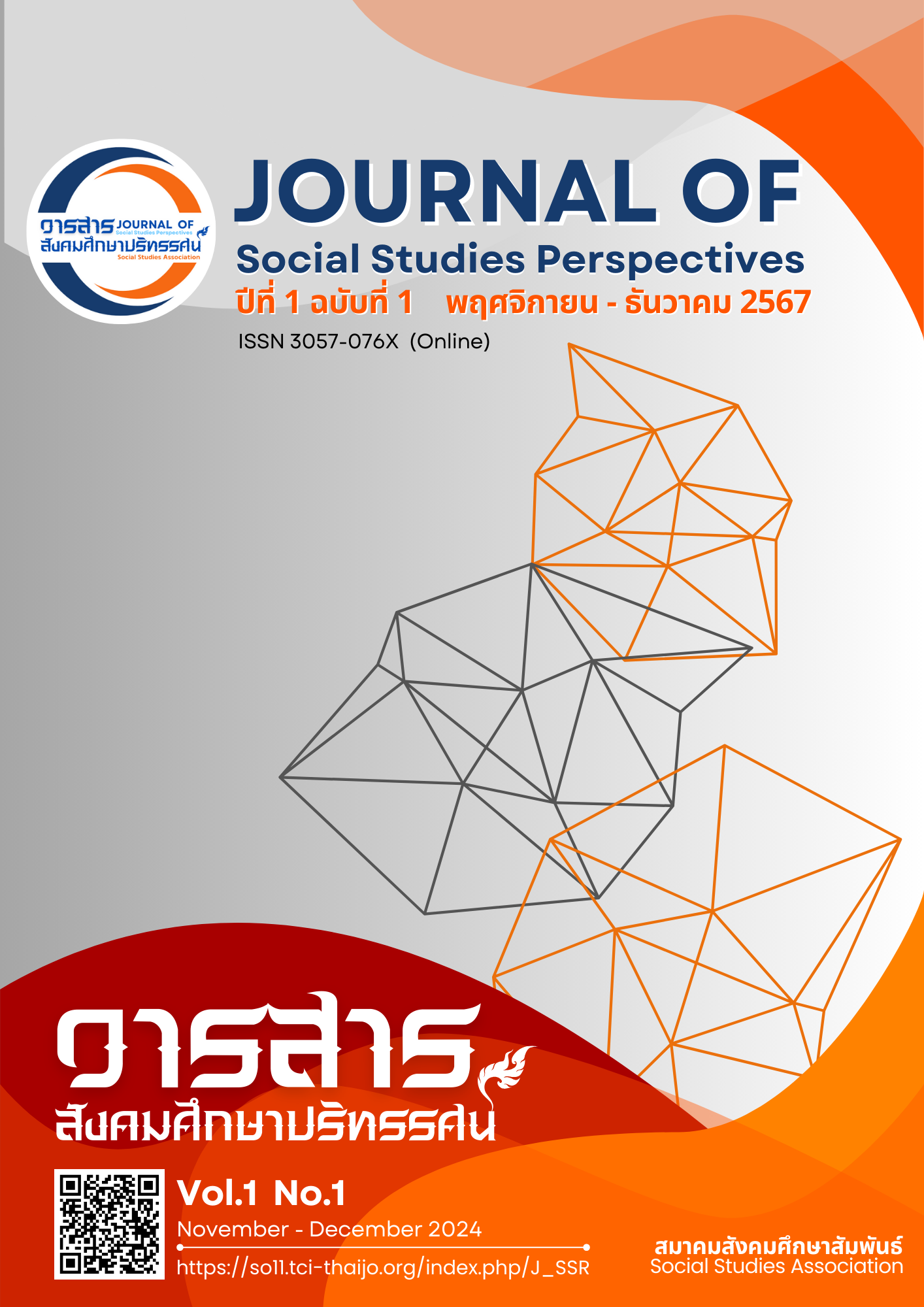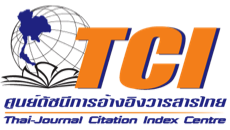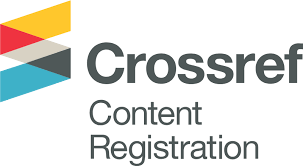THE RESULTS OF ACTIVE LEARNING ACTIVITIES USING CONSCIOUSNESS – DRIVEN DRAMA WITH AWARENESS TO PROMOTE RRLATIONSHIP – BUILDING SKILLS OF JUNIOR SECONDARY YEAR THREE STUDENTS THAKSIN UNIVERSITY DEMONSTRATION SECONDARY SCHOOL
DOI:
https://doi.org/10.64186/jsp1261Keywords:
Active learning,, Consciousness-Driven drama, Interpersonal relationship skillsAbstract
Abstract
This research aims to 1) compare the results of active learning activities using the drama of danger (under) consciousness to promote relationship-building skills and 2) study the satisfaction of Mathayom 3 students towards the active learning activities using the drama of danger (under) consciousness to promote relationship building skills. The action research studied the concept of active learning, creative drama, and relationship-building skills as the research framework. Using purposive sampling, the sample group consisted of 3 classrooms of Mathayom 3 students, totaling 87 students. The research instruments consisted of 3 types: 1) a learning management plan using active learning activities using the drama of danger (under) consciousness, 2) relationship building skills assessment form and relationship building skills assessment form, and 3) satisfaction questionnaire of Mathayom 3 students towards the active learning activities using the drama of danger (under) consciousness to promote relationship building skills. The data were analyzed using mean, standard deviation, and Z-test. The research results found that: 1. Relationship building skills Using the drama of danger (under) consciousness after studying was significantly higher than before studying at the statistical level of .05. 2. The satisfaction of Mathayom 3 students towards organizing active learning activities by using the drama of danger (under) consciousness to promote relationship-building skills was at the very best level. The knowledge/findings from this research will be useful for teachers who are interested in organizing active learning activities towards group work processes by using classroom activities in the form of drama to create the drama of danger (under) consciousness in the classroom based on creative and happy interactions.
References
Baldwin, Jill1 & Williams, Hank2. (1988). Active Learning: a Trainer’s Guide. England: Blackwell Education.
Baipho, P. (2021). Development of Storytelling with Creative Drama Activity Package to Enhance Relationship Skills of Primary School Students. Bangkok. Faculty of Education:Chulalongkorn University.
Collaborative for Academic Social and Emotional Learning: CASEL. (2017). Sample Teaching Activities to Support Core Competencies of Social and Emotional Learning. https://casel.org/sample-teaching-activities-to-support-corecompetencies/
Damrung, P. (2007). Drama for youth (Phim khrang thī 3.). Bangkok: Chulalongkorn University Press. Form*/”Active Learning Management by STAD Techniques of Students Course Psychology for Teachers in the Graduate Diploma Teaching Profession College of AsianScholars,”/by/ Songad, P,/2019/College of Asian Scholars Journal,/Volume(2019),/p. 161 – 172.
Hening, R. B1, & Stillwell, L2. (1981). Creative drama for the classroom teacher (2nd ed.). Prentice-Hall.
Jungwiwattanaporn, P. (2004). Creative Drama for Children. Bangkok: Institute of Academic Development.
Office of the Basic Education Commission. (2019). Guidelines for supervision to develop and promote active learning management according to the policy Teach less, learn more. Bangkok: OBEC Supervisory Division.
Phattarakorn, S. (2009). The Effects of Organizing Activity Learning on Problem Solving and Mathematical Communication Abilities of Mathayomsuksa III Studenta in Probability. Bngkok: Srinakharinwirot University.
Secondary Education Administration Bureau. (2015). the guidelines for learning management In 21st Century Skills that Emphasize Professional Competence. Bangkok: The Agricultural Cooperative Federation of Thailand Publisher.
Singcharoern, T. (2000). The satisfaction of Grade 7 students at Wang Klai Kangwon School and Rajaprajanugroh School under Royal Patronage with the satellite-based distance learning method. Bangkok: Ramkhamhaeng University.
Somsak, D. (2021). Guidelines for Education Management to Develop Human Resources in the 21st Century. Bangkok: Journal of Teacher Professional Development.
World Health Organization: WHO. (2003). Skills for health: Skills-based health education including life skills: An important component of a child-friendly/healthpromoting school.
Downloads
Published
How to Cite
Issue
Section
Categories
License
Copyright (c) 2024 Journal of Social Studies Review

This work is licensed under a Creative Commons Attribution-NonCommercial-NoDerivatives 4.0 International License.
The article is published under the Creative Commons Attribution-NonCommercial-NoDerivatives 4.0 International (CC BY-NC-ND 4.0) license, which allows others to share the article while giving appropriate credit to the author. It prohibits the use of the article for commercial purposes or the creation of derivative works. Any other reuse or reproduction requires permission from the journal.










